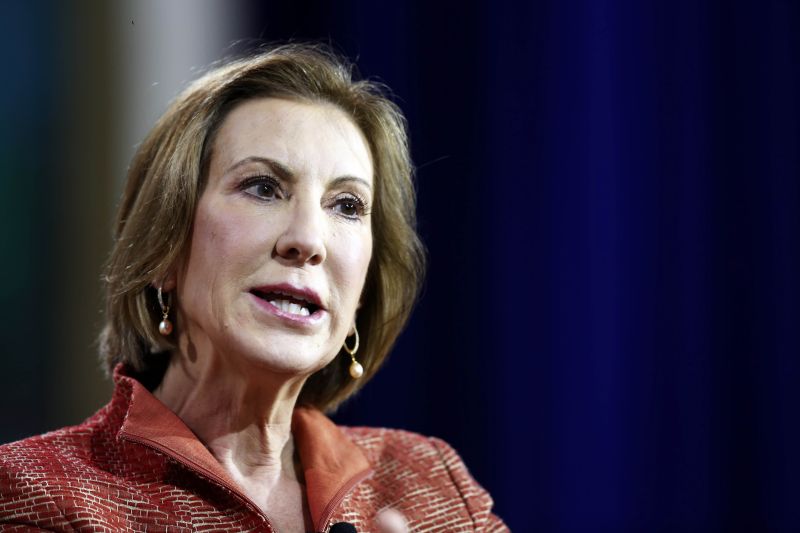It was kind of a sad week this week because one of my favorite CEOs, Joe Tucci, is stepping down. Another CEO, Carly Fiorina, was in the news due to her effort to become Vice President in what is seen as a desperate effort to steal victory from the Republican front runner, Donald Trump. Tucci has, in the past, spoken about his frustration with the political process and there have been a large number of us that know him and have tried to get the guy to run for office, but—unfortunately—he has declined. Tucci may be the kind of politician we need, but Fiorina is more typically the one we get.
Let’s talk about what made Tucci successful and why Fiorina failed.
Better Start
What makes this contrast interesting is both CEOs were originally hired to turn around their respective companies. Tucci came from Wang and Fiorina from AT&T, Tucci was an experienced CEO when he started the job at EMC. HP was Fiorina’s first and only CEO job.
Now, one of the things I’ve noticed is that often people don’t get what the CEO job is and carry the perceptions of their prior job into it. In Fiorina’s case her strength was marketing, presentation, self-promotion (often critical to any successful executive), and managing perceptions. She was a woman in a “man’s industry”, which undoubtedly created a higher level of paranoia and an unwillingness to develop a skill critical to any CEO, and that is building loyalty to the folks that report to them.
So, starting out Tucci was the more experienced and that was a considerable advantage. But I actually think leadership skill was by far the bigger differentiator.
Leadership
There is a big difference between leadership through loyalty, and management through intimidation that a scary number of executives don’t seem to get. Both are viable approaches—and they aren’t mutually exclusive—but the former is a far greater prerequisite for success and far more difficult to do well.
This is perhaps the most glaring difference between CEOs like Fiorina and Whitman, and CEOs like Tucci and Dell. While the former are often defined by churn in their immediate staff and disclosures that they were hated after they departed, the latter are defined by tearful remembrances and heart felt wishes that they weren’t leaving (by the way this can make replacing the latter group successfully problematic).
This is because the successful CEO knows how to give and share credit, they know they’ll get credit if the company does well automatically, and that if they share that credit it builds loyalty and that loyalty leads to better execution creating a circle of success. Their executive staff that will have their back rather than be looking to put a knife in it.
Dealing With Layoffs
Both CEOs have had to do layoffs but Tucci seemed to feel the pain of the event and they didn’t define him. Fiorina more often has to point to the layoffs as if they were a successful part of her failed tenure at HP. Layoffs are difficult to do well and big ones can be catastrophic. There is no argument that what Fiorina and Tucci did were difficult but the treatment of a layoff as a success makes it appear that employees are not important to the CEO and it degrades loyalty. Tucci’s treatment was to get beyond the layoffs as if they were an embarrassment and a failure regardless of the execution because that says that he cares about his employees and that better assures loyalty. The difference means that people believe that Tucci would avoid layoffs and only do them if he had no choice, Fiorina would do layoffs with no regrets and would appear to more likely use them as a primary management tool. This not only hurt her in terms of employee loyalty at HP but in terms of winning elective office.
One final comment on this, if you meet Tucci and shake his hand you get the sense he really cares, if you meet Fiorina and shake her hand you’ll likely be kind of surprised you got your hand back and that you’ve been assessed as an asset or liability not as a person.
Product Competence
Another area of differentiation is product knowledge and competence. Both CEOs were initially new to their company’ s technology but Tucci began by being more technically engaged and he came from Wang which was a computer company. Fiorina came in from marketing and telecom—an industry and operating area that not only had very different technology, but one where marketing wasn’t driven to be intimate with it. People were often amazed at how well Tucci understood the technology he sold and equally astounded at how little Fiorina knew about what HP did. This means it is far harder for Tucci to be fooled by an underperforming but articulate subordinate. One of the scandals that Fiorina had while running HP was being fooled by just such a person who covered up poor performance in Europe.
Looking at the sharp difference in execution between Microsoft’s current CEO, Satya Nadella, and the former CEO, Steve Ballmer, showcase the need to be a subject matter expert in the business you are running. Ballmer was clearly a strong executive—incredibly detail oriented, and there is no doubt he loved Microsoft. But, he was a business guy not a software expert and, as a result, Nadella has outperformed him.
Steve Jobs, the most successful CEO of the last decade, was also known as the most intimate of all CEOs with the products that he sold and we’d be foolish to not consider that as a differentiator. Another reason Tucci and Dell outperform CEOs like Fiorina and Whitman is because they are far more intimate with their products.
Wrapping Up
I think one of the reasons our governments are so inefficient and unsuccessful is we elect politicians that are far more like Fiorina than they are like Tucci. Experts at creating positive impressions and dodging blame rather than expert at actually getting the job done. Tucci is beloved in EMC and he was supposed to retire years ago but no one wanted him to go. When Fiorina was at HP most employees seemed to wish she had never arrived in the first place and almost literally partied in the Silicon Valley streets when she departed.
If you aspire to be a CEO or are considering working for a company, or buying from one, and have a choice, consider looking at the contrast between Tucci and Fiorina, and why one approach is better than the other. It speaks directly to the future success of the company and your own related exposure. Now if we could just effectively get this same level of consideration into politics we could likely save the world.
Something to think about this week.
Vaya con Dios Joe, I already miss you, fortunately Michael Dell was cut from a similar mold.
- Why Intel’s FAB and Foundry Expansion May Save the Company - April 19, 2024
- Intel Vision: How the AI Wave Could End the Wintel Age - April 12, 2024
- With AI, Communication Skills Become Vastly More Important - April 5, 2024




Bob, please tell us how many Fortune 500 companies you have run, so we will know how seriously to take your comments. If the answer is none as I suspect, I will then know exactly how much attention to pay to your thoughts, that is, none.